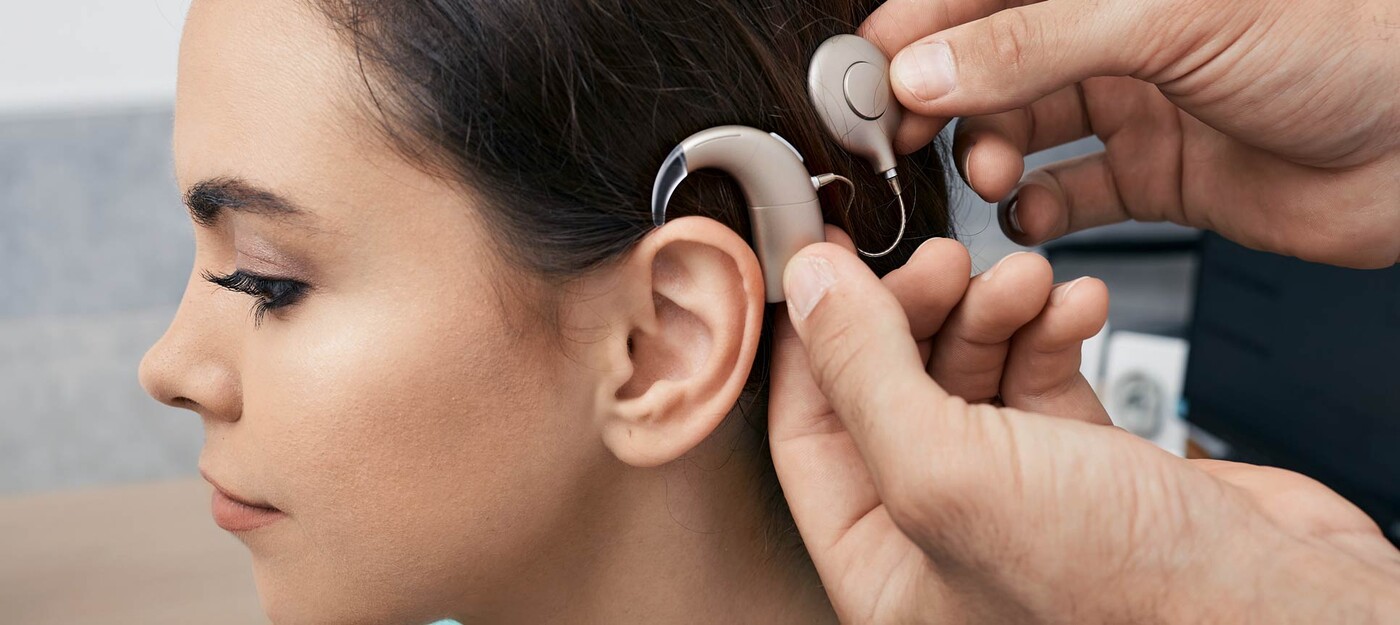People with severe hearing loss in just one ear are now eligible to receive cochlear implants. These surgically implanted devices not only improve a person’s overall hearing, but also boost their speech understanding as well as improve directional hearing (identifying where a sound is coming from) and quality of life. People with this or any kind of hearing loss have better outcomes the earlier they receive an implant.
Maximized Hearing Potential and Improved Quality of Life
In July 2019, the U.S. Food and Drug Administration (FDA) approved cochlear implantation in people with single-sided deafness (SSD) or asymmetrical hearing impairment (AHL), which is when the poorer hearing ear receives limited or no benefit from a hearing aid. Before that, only people with bilateral hearing loss (meaning hearing loss in both ears) were eligible. That left out people who had “one good ear” but were still struggling to hear and communicate. This increases the risk for social isolation and depression in adults, and delayed language and speech development in children. Duke audiologist Erin Blackburn, AuD, believes the expanded criteria is an important step toward removing barriers to cochlear implants for those who could benefit from this life-changing technology.
“Hearing loss has meaningful consequences for the listener, even when only one ear is affected. Relying on hearing in one ear alone may be manageable in quiet, one-on-one situations. However, in social or more dynamic listening environments, communication barriers are likely to arise, even when the stronger ear has normal hearing. Additionally, when a person only hears well from one ear, they will have trouble localizing sounds, which can affect a person’s safe interactions in public,” Blackburn said.
Many people with hearing loss experience tinnitus in their bad ear, which can also be debilitating. Research shows that cochlear implantation can reduce or eliminate tinnitus, which is another bump to quality of life.
“This population has been underserved in terms of intervention options,” Blackburn said. “Historically, we may have recommended a device that transmits sound from the poorer ear over to the stronger ear. This is useful for some individuals, but it does not provide the many advantages of hearing in both ears. Being able to restore hearing to both ears and giving full stereo sound quality to more people is very exciting.”
If you or a loved one have hearing loss, cochlear implantation may be an option. Our expert audiologists can assess your situation and help you find the solution that is right for you.
Am I Eligible?
Other eligibility criteria require you to:
- Have sensorineural hearing loss (meaning the cause stems from the inner ear or cochlea)
- Have one or both auditory nerves present
- Receive little or no benefit from hearing aids
- Be healthy enough to have surgery
If you or a loved one have hearing loss, cochlear implantation may be an option. Our expert audiologists can assess your situation and help you find the solution that is right for you.






